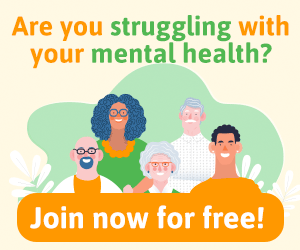To live without regret is to own up to our mistakes and learn from them. However, we often forget this and end up beating ourselves up. Psychologist Stanislava Puač Jovanović explains six ways you move on in life to ensure you are living without regret...
Life is filled with mistakes. There is no arguing it. Every decision, big or small, bears the risk of misjudging. We pick the wrong schools and get into careers that are not right for us. We spend too much energy on people who do not deserve it — and too little on those who do. Sometimes, we waste our time as if we were going to live for ever.
In my personal experience, the older you get, the more irreversible mistakes get.
I always loved my father like no other person. But, we had a very complex and conflicting bond. Every step of the way, the relationship was healable – until it was not. You see, he suddenly passed away in his sleep. On that morning, the opportunity (I never took) to fix the past errors was gone for ever.
We accumulate faults, and they become more and more severe. Living without regret might, then, sound like too much of a stretch. Yet, it can be done. You do not have to succumb to rumination and guilt. This article will speak about letting go of regret without denial or repression. The key to living without regret is in the true wisdom of awareness, acceptance and learning.
Why living with regret is bad
My biggest regrets — and I’ve had a few — have stayed with me for a long time. They ran my life. All my actions and emotions were, quite often, subdued to my guilt and anguish. I was miserable, furious, bitter, desperate, and struggled to find meaning. My physical health deteriorated considerably, too.
Does it sound familiar? When your past mistakes overtake control over your life, you gradually become unable to live in the present. You get stuck in that horrible moment in which you did something wrong — without the possibility to undo it. It is in no way a good place to be in.

To live without regret is to own up to our errors and learn from them
Indeed, research has shown that those who are highly critical of themselves and are filled with remorse experience significant negativity, stress and pessimism. Suppose you do not put effort into learning to live without regrets tainting your life. In that case, you may be heading towards a range of mental and physical health problems.
In the light of the ongoing COVID-19 pandemic, a study found that self-blame regret is associated with high levels of stress and depression.
Another study revealed that regret supports excessive, addictive use of social networking sites.
Furthermore, regret about a treatment decision can hinder full recovery, as research on patients with cancer demonstrated.
Physical health is also affected by intense and prolonged regret. An elaborate study revealed that intense experiences of regret are associated with a health-relevant biological process, acute physical problems and sleep disturbances.
Six ways to live without regret and move forward
Living without regret can be a challenge, especially for those who are used to beating themselves up. If you are your harshest critic, guilt can easily overwhelm your life.
Yet, the only way for you to grow and be a productive and creative being is to reshape the regret into something good. Here are six ways to do just that.
1. Mend the mistakes
The good news is — many of our errors can be mended. To some extent and in some way, at least.
For example, you cannot unsay ghastly things you said when you were angry at your partner, friend or family member. What you can do is – apart from apologizing effectively, of course – use the incident to deepen the relationship. Talk about it calmly afterwards. Express your emotions, beliefs, insecurities, painful spots.
Now think about the causes of your regrets. Is there a way to make it better? Could you take it from where you are now and improve things a bit somehow? Or, could you maybe use the experience to create something good, valuable?
What’s done is done. But can you put those upsetting experiences to good use in some way?
2. Accept and self-accept
Life does not always feel comfortable. That is the uneasy truth. However, it is the truth. Accept that you will always be thrown challenges. You will sometimes be ill-treated. You will not always know what to do in a situation. It is natural, then, to make quite a few mistakes in response to hardships.
Now, accept yourself as you are, too. Self-acceptance is the first step towards living without regret. It means being aware of both your strengths and your weaknesses. Being objective about who you are.
“To live without regret is to own up to our errors and learn from them. It means accepting the reality of human nature.”
It will help you not to beat yourself up but grow from your experiences. This is why unconditional self-acceptance is one of the elements of the six-factor model of psychological well-being.
3. Reframe and learn
Regret leaves us with a sense of powerlessness, naturally. We are feeling repentant over something we cannot take back or change. However, there is a way out of it.
An enormously powerful way to start living without regret is to change the way you see things. Reframing is a potent psychological tool. In case of futile rumination and remorse, it can turn things around for you.
RELATED: These 4 NLP techniques will change how you think
How to do it? Start thinking about life as a series of experiments and experiences that help us learn. Setbacks and disappointments can be seen as the end of the world. They can, however, also be thought of as learning opportunities. So, the more experiments (and errors, too) you make, the more understanding you acquire.
So, you did something wrong. Imagine you were an experimenter. Instead of committing to self-torture, ask yourself:
- What did you learn from it?
- How can you act differently in the future to avoid getting yourself into the same situation?
- What insight did you gain?

Self-acceptance is a step towards life without regret shutterstock/Andrei Mayatnik
4. Focus on your strong points
When we are filled with remorse, we tend to reproach ourselves and forget that we have many strengths. We may start thinking about ourselves as the worst people out there.
Recognizing your strong points is crucial to start living without regret. In a way, you need to justify and allow yourself to move on from regret. Stop punishing yourself, in other words. To do so, you might feel the need to convince yourself that you are deserving of self-forgiveness (I'll get to that point shortly).
So, ask yourself:
- What good deeds did I do in the past?
- How did I help someone?
- What do people like about me?
- What did I succeed in?
- What is my strongest suit?
- What hardships have I overcome?
5. Suppress
In psychoanalysis, repression is a defence mechanism that takes away the painful experiences and pushes them deep into the unconscious mind. Yet, from there, the repressed content tends to wreak havoc in our lives. Repression, therefore, is not a healthy defence from whatever is torturing us.
On the other hand, suppression is a more mature form of defence from regret, among other uncomfortable experiences and feelings. The American Psychological Association defines it as: “a conscious effort to put disturbing thoughts and experiences out of mind, or to control and inhibit the expression of unacceptable impulses and feelings.”
Practically, it means consciously deciding that you are moving on or away from things you cannot change. In some cases, when things cannot be reversed or errors repaired, suppression is the healthy thing to do.
“An enormously powerful way to start living without regret is to change the way you see things. Reframing is a potent psychological tool.”
For example, you were in an abusive relationship. You may ruminate about it and keep reliving the trauma. Or, you can realise that this is not productive. You can then decide to put it out of your mind, as you are not in danger anymore. You will not change what happened. There is no point in being hung up on the fact that you chose an utterly wrong partner. In that way, you decide to live without regret and be free.
6. Forgive yourself
The highest expectations we usually have are the ones we put in front of ourselves. Living without regrets is nearly impossible from that perspective. All of us will fall short of self-imposed high standards at some point.
Holding onto resentment and being unforgiving, whether to others or ourselves, increases our stress levels and takes a toll on our well-being. To live without regret and avoid physical and mental health issues that may develop, you need to learn to forgive yourself. Be self-compassionate and accept that you are imperfect. Everyone is.
According to Stanford University’s summary of recent findings in the field, self-forgiveness leads to:
- Wisdom
- Increased ability to focus, success and higher productivity
- Better emotional health
- More quality relationships
- Sense of happiness and gratitude
Takeaway: living without regret
Living without regret does not mean being selfish or blind to your faults. You are not saying that what was wrong was right.
To live without regret is to own up to our errors and learn from them. It means accepting the reality of human nature. We err. And those mistakes, same as good choices we make, decide the direction of our lives.
My mistakes have changed me. The big ones, in the end, took something away. I probably will never be the same cheerful me with an endless zest. It was, in my case, a privilege that came with youthful ignorance on the seriousness of life.
However, by overcoming the rumination and fruitless regret, I also gained something. I became a little bit wiser, humbler and grateful. Consideration, respect, kindness, sympathy, benevolence and thoughtfulness are rewards for accepting past mistakes and deciding to become a better human because of them. So, live without regret in order to grow until your last breath. •
Main image: shutterstock/mimagephotography
happiness.com | The fine art of being: learn, practise, share
Are you a happiness.com member?
Join free now and:
■ enjoy our happiness magazine
■ share and support in our happiness forum
■ develop with free online Academy classes
Written by Stanislava Puač Jovanović
 Stanislava Puač Jovanović has a master’s degree in psychology and works as a freelance writer and researcher in this area. Her primary focus is on questions relating to mental health, stress-management, self-development and well-being.
Stanislava Puač Jovanović has a master’s degree in psychology and works as a freelance writer and researcher in this area. Her primary focus is on questions relating to mental health, stress-management, self-development and well-being.


Join the conversation
You are posting as a guest. If you have an account, sign in now to post with your account.
There are no comments to display.